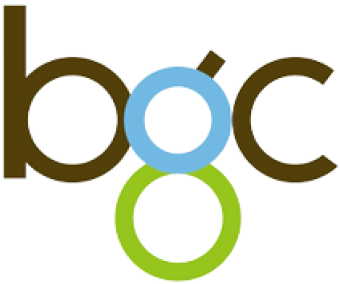In the landscape of remote work, being open and fair about hiring is crucial. Ethical hiring practices aren't just words; they're the key to making remote teams that really work well together. It's like having a rulebook that makes sure everyone, no matter their background or experience, gets a fair shot. In a remote team, where the nuances of face-to-face interactions are limited, these principles become even more important.
This article will discuss the importance of ethical hiring practices, examine common unethical hiring processes, and highlight proven best practices that HR recruiters can integrate into their hiring processes. By understanding and implementing these principles, organizations can not only navigate the challenges of remote work but also cultivate a culture of inclusivity and success within their teams.
What is Ethical Hiring and Recruiting?
Building trust and fostering a transparent and inclusive culture in a remote team is crucial at every stage of the hiring process. Ethical hiring and recruitment involves evaluating the merits and skills of job applicants regardless of factors like nationality, religion, or personal background. Beyond legal obligations or compliance, this process is rooted in establishing a fair and equal ground for all potential candidates.
This includes eliminating bias through structured interview formats, diverse panels, and standardized assessments. It also involves building clear, honest job descriptions that accurately reflect a specific role and organization. By building an environment where diverse perspectives are valued, respected, and celebrated, your business will be able to attract better talent and build a more innovative and engaged remote team.
Examples of Unethical Hiring Practices
Unethical hiring practices include any discriminatory actions or recruitment policies, whether intentional or not, that can make the process unfair or biased. Examples of unethical hiring practices that can negatively impact remote teams include:
1) Geographic Bias
Geographic bias during the remote hiring process involves favoring certain candidates from specific locations. This limits opportunities for equally qualified applicants from diverse regions. This bias can hinder the development of a global and diverse remote team. To avoid this bias in your hiring processes, evaluate candidates based on their skills and qualifications rather than their geographic location.
2) Affinity Bias
Affinity bias arises when an interviewer's personal preferences influence their hiring decision-making. For example, if an applicant looks, talks, acts, or shares a similar trait. Choosing candidates based on personal affinity instead of tangible skills and experience can hinder your organization's ability to foster an inclusive workplace.
3) Poorly Structured Interviews
Unethical hiring practices can also extend to poorly structured remote interviews. Inconsistent interview structures and a lack of standardized questions may introduce bias and interfere with fair evaluations. Ethical hiring practices involve well-structured interviews with a set of predetermined questions. This ensures that all candidates are consistently evaluated solely based on their skills and qualifications.
Importance of Ethical Hiring Practices
In the world of remote work, where team members connect through screens instead of face-to-face, the foundation of a successful working dynamic relies on trust, inclusivity, and a shared sense of value. Ethical hiring practices are the key to building a culture where every employee feels empowered and heard. Ethical hiring practices are the building blocks for fostering a fair organizational culture where all employees are treated fairly, irrespective of their background.
Ethical hiring practices serve as a magnet for attracting top talent across borders. Talented candidates actively seek online reviews about company practices and are drawn to companies that prioritize fair and unbiased hiring practices. It also helps reduce attrition and boost employee morale by increasing job satisfaction and building a more positive and productive remote team culture.
Best Practices For Ethical Hiring and Recruiting
By incorporating these proven best practices in your hiring and recruitment processes, your business will be able to build a more inclusive, transparent, and successful remote team.
1) Honest and Transparent Communication
Open and transparent communication is critical. Job descriptions should accurately represent your hiring role, company culture, and expectations. You should also keep candidates informed about the timeline of hiring and recruitment cycles, even if they are not selected. Remote candidates rely on accurate and timely information to make informed career decisions. Therefore, transparent and honest communication is the key to building trust from the start.
2) Anonymize Applications
To eliminate potential bias, anonymize applications during the initial round of screening. This involves removing identifiable information such as names, locations, or educational institutions. This ensures that candidates are evaluated solely based on their skills and experience instead of irrelevant personal details.
3) Standardized Interviews
One of the most critical ethical hiring practices is using standardized interview processes to maintain consistency. Develop question sets and evaluation criteria focused on essential skills and competencies outlined in the job description. Avoid asking open-ended questions that rely on personal opinions or beliefs that could lead to bias. Instead, focus on career-related experiences and achievements and use consistent scoring methods.
4) Diversified Interview Panels
Assemble interview panels that reflect the diversity you aim to include in your remote teams. This involves embracing interview panels with diverse ages, work experiences, skill sets, and ethnicities. Having a mix of perspectives will help evaluate candidates fairly and reduce the risk of bias.
Build Your Remote Team Today With BGC Group’s EOR Services
Are you ready to assemble your remote teams? Propel your business forward with BGC Group's Employer of Record (EOR) services . With 18 years of experience and a proven history of supporting over 2,200 employees across the world, our EOR services are the key to supporting your global expansion. Contact us for a free EOR quotation and start your journey to international success today.




